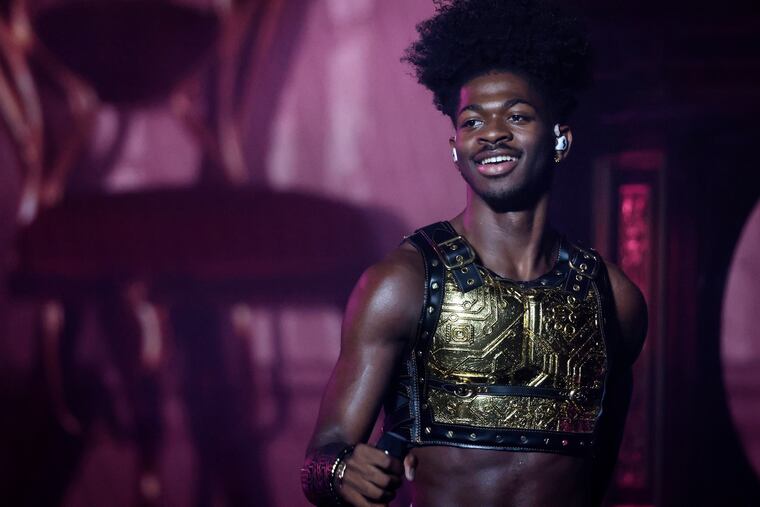Language scholars decided ‘-ussy’ was the word of 2022. Here’s what that means.
“new suffixussy just dropped "

A group of more than 200 linguistic scholars decided last week that “-ussy” was the word — or technically, the suffix — that defined 2022. Now, I have the difficult task of figuring out how to explain to you what that means in a way that is suitable for newsprint and (hopefully) won’t get me fired. I’m so sorry.
“-Ussy” is more a vibe than a definable phrase. Its origins derive from a phrase that combines “boy” and their nether regions. Notably, in mainstream pop culture, Lil Nas X used a version of the phrase — one he advocated to be added to the dictionary — to promote his album Montero.
But, as the American Dialect Society announced Friday, the suffix has taken on a playful role in youth slang.
From “SCOTUSSY” — which was thrown around online during coverage of the Supreme Court’s decision to overturn Roe v. Wade, to “pizzussy” — a very unserious way to playfully and ironically sexualize the enjoyment of pizza and calzones, young people basically just slapped “-ussy” on the end of any phrase.
Or, as one Vulture article put it, “now everything is a cat or a cavity.”
The American Dialect Society isn’t the only group that chooses an annual word of the year. It’s a common practice from groups including Oxford Dictionaries and Dictonary.com. Their respective words of the year for 2022 were “goblin mode” and “woman.”
Linguistic experts largely have celebrated the incorporation of slang into the annual practice. According to the American Dialect Society, other contenders this year were phrases like “quiet quitting.”
“The selection of the suffix -ussy highlights how creativity in new word formation has been embraced online in venues like TikTok,” said Ben Zimmer, chair of the society’s New Words Committee and language columnist for the Wall Street Journal.
The American Dialect Society is a 133-year-old group composed of linguists, lexicographers, etymologists, grammarians, historians, researchers, writers, editors, students, and independent scholars. According to the group’s press release, its vote is an act of fun.
“[We] do not pretend to be officially inducting words into the English language,” the press release said. “Instead, they are highlighting that language change is normal, ongoing, and entertaining.”
According to Know Your Meme, fun with “-ussy” predates the 2020s. The slang surfaced in the late 1980s and was prevalent among the LGBTQ+ community.
Today, other versions are used by the LGBTQ+ community, centering around combining “-ussy” and a prefix related to the body part a person might perform or receive sexual acts on. This trend took off primarily on Tumblr. From there, the suffix took on a new life, as a silly way to turn any phrase into slang.
Zimmer said the suffix has been used to generate new slang terms: “The process has been so productive lately on social media sites and elsewhere that it has been dubbed -ussification.”
Swarthmore College linguistics professor Kirby Conrod, who teaches on topics including syntax and sociolinguistics, told The Inquirer they were one of the linguists who nominated the phrase for the dialect society’s word of the year.
“[It] can be a physical structure analog — like a donutussy, [with] a hole, or it can be metaphorical,” Conrod explained. “So, if you’re a really dedicated coffee artist and you really put your whole baristaussy into this latte, I’m expecting some killer latte art.”
They added that the society’s title is supposed to go to a phrase that most held people’s attention.
“I’m genuinely delighted that it won. Lately, the more political and ‘current-events-y’ words of the year have been depressing, and it doesn’t feel like the symbolism really accomplishes anything,” they said.
On Twitter, the American Dialect Society’s announcement was well-received by linguists and the general public.
“-Ussy as a suffix is beginning to become academic,” Twitter user @RoseDees7 wrote. “We’re gonna meme our language into absolute chaos and I’m here for it.”
Conrod hopes the attention reminds people that linguistics doesn’t have to be boring.
“I hope people get to learn that linguistics is fun and hilarious and queer and not a bunch of stuffy grammar nerds frowning at each other constantly,” they said.